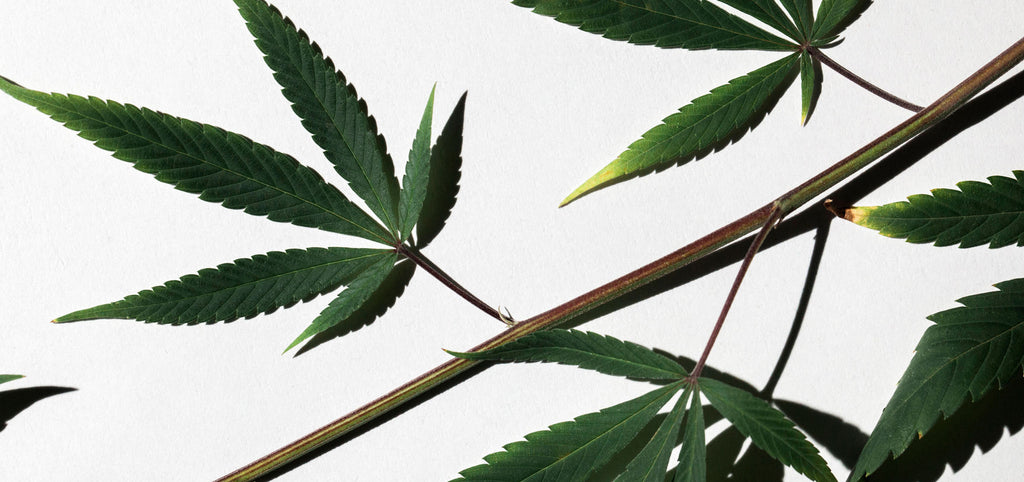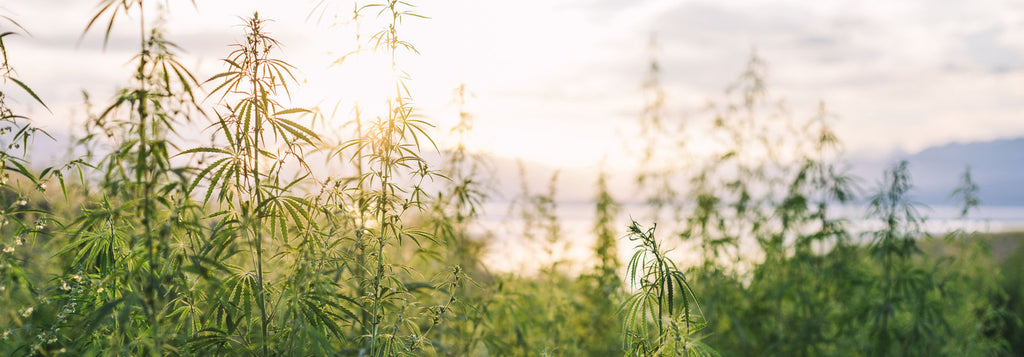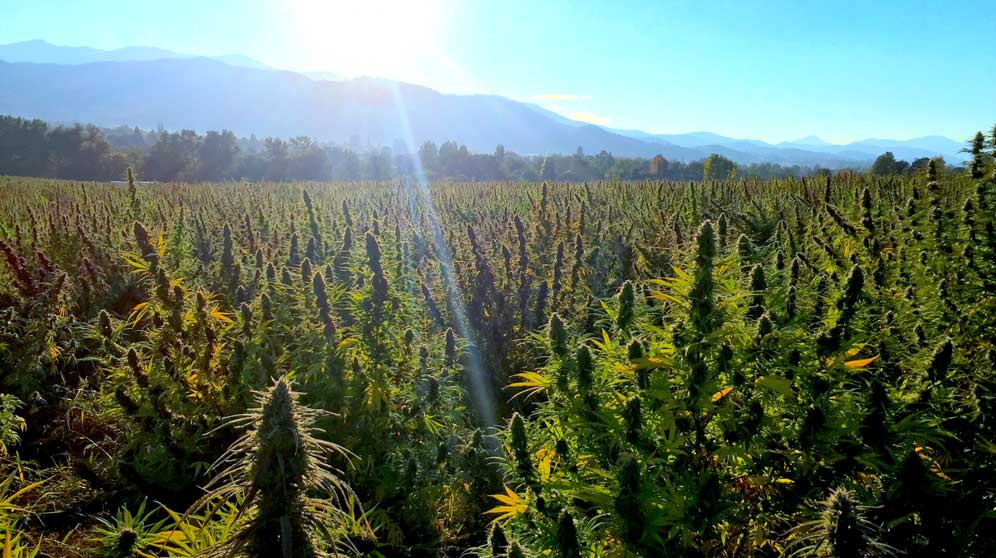- CBD oil is generally safe to take, but there may be risks and side effects
- How CBD oil may react with your other medications
- Who shouldn't take CBD oil?
For many of us, it may seem as though cannabidiol (CBD) sprang up out of nowhere. Within a few short years, this obscure molecule found in cannabis plants has moved from near-anonymity to a cure-all embraced by millions.
From college campuses to retirement homes, everyone’s talking about CBD, leaving many to speculate about when the other shoe will drop, revealing some negative aspect to the health trend.
Although CBD might be a new molecule to you, scientists have been studying it since the 1970’s, alongside its infamous sister molecule, THC. For the past few decades, lawyers, doctors, patients and politicians have all been pitting the medical potential of cannabis against its risk for recreational abuse. But all the while, evidence has been mounting that CBD offers similar — if not better — medical benefits without the downside of a “high” from THC.
Even a critical review by the World Health Organization (WHO) recently reported that CBD is a promising treatment for a number of medical conditions, is well tolerated, has a good safety profile, and doesn’t appear to be a risk for abuse, dependence, or other public-health related problems. In other words, even the WHO thinks CBD is A-OK.
When looking through the thousands of scientific articles referencing CBD, it’s very difficult to find any evidence of dangerous side effects or contraindications. However, widespread use of concentrated CBD is a very new phenomenon, and your safety is our priority.
So we thought we’d compile all the negative scientific evidence into one handy guide, to help you decide whether CBD is right for you. We’ll cover the different side effects you might encounter and what they could mean, as well as what current research says about trying CBD if you are:
- Immune-compromised
- Currently taking prescription drugs
- Pregnant or trying to conceive
- … and more

Clinical evidence for CBD oil
CBD critics are absolutely correct when they state that definitive clinical evidence is lacking to recommend CBD for many of the reasons people currently take CBD products. CBD is currently available as an FDA-approved prescription treatment (called Epidiolex) for two rare forms of childhood epilepsy. But in order to gather the clinical evidence required for this status, the manufacturer needed to pay for almost two decades of research and clinical trials.
Now that Epidiolex has opened the door for CBD’s acceptance by the medical community, you can expect to see more prescription uses for CBD in the future. However, because of the way our medical system is structured, the stamp of approval can only be gained after a long period of costly clinical testing. This testing is paid for by companies that can patent and profit from the results.
In the absence of definitive, slam-dunk clinical evidence, what the general CBD community does have to work with is a great deal of preliminary scientific evidence from laboratory experiments, animal models and case studies. Hundreds of scientific papers are published annually on cannabidiol, and the vast majority continue to point at CBD’s safety & efficacy for a wide range of conditions. This preliminary scientific evidence — from animal studies and human case studies — is what gets the ball rolling towards clinical trials.
If you check the US government’s clinical trials database, you’ll see that more than 50 trials are either currently active or recruiting participants for conditions ranging from arthritis to drug abuse disorders. (Foria is participating in this movement with a 400-person study on the efficacy of our CBD suppositories for menstrual cramps and pain — although this isn’t a clinical trial, but a less-expensive self-reported survey.)
These trials will double the number of preexisting clinical trials that have been carried out for cannabidiol, and it’s just the beginning. Will some of the promising benefits of CBD prove wrong when tested clinically? Most likely. People are currently trying to treat countless conditions with CBD, and it’s likely that a few of them might not be any more effective than placebo when tested with clinical trials.
So yes, you may be jumping the gun by taking CBD to address a health issue when its use is not yet supported by clinical evidence that would pass muster with the FDA. But that clinical evidence won’t be available any time soon, and many people don’t want to wait a decade before finding out for themselves if CBD is effective for their needs.
Side effects based on high-dose clinical trials
Because we lack clinical evidence in favor of CBD, we also lack clinical evidence against CBD. From the few clinical trials that have been conducted, no conclusive severe side effects have surfaced.
The most comprehensive results available are based on Epidiolex, the FDA-approved CBD drug for childhood epilepsy. During clinical trials, youths between ages 2 and 18 were prescribed high daily doses of CBD for 14 weeks. The daily doses were equivalent to 1,360 mg for a 150-pound adult — more than is typically found in an entire bottle of CBD oil.
These are the side effects they most often experienced:
- Tiredness
- Decreased appetite
- Gastrointestinal problems
- Altered liver enzymes (see following section for more on liver enzymes)
For most patients, these side effects occurred during the first few weeks while they were quickly raising their dosage. The symptoms typically subsided after their dosage stabilized, and lowering the dose was also an effective way of decreasing undesirable side effects. If you’re experiencing any of these side effects on your current CBD product, you might experiment with waiting it out a week, lowering your dose or trying a different type of product entirely.
If you’re experimenting with high doses of CBD, we recommend reading more about what scientists learned from the Epidiolex trials. You can find the results of their 120-person clinical trial here and their FDA documentation here.
Side effects from dishonest CBD products
Clinical trials give patients high-quality, safe products which contain a reliable quantity of CBD. The Epidiolex side effects are ones you might expect from a high dose of a very pure product. On the other hand, because the supplement industry in the US isn’t heavily regulated, if you purchase CBD from dishonest or potentially unsafe manufacturers, you might experience very different side effects. In fact, when scientists recently tested a variety of publicly-available CBD products, only 31% were accurately labeled.
What can these unreliable products contain?
- Pesticides and heavy metals from bad farming practices
- High levels of THC (more than desired)
- Synthetic cannabinoids
- Any kind of contaminants (mold, bacteria, rancidity, etc)
Sometimes CBD products don’t contain any CBD at all — in which case you won’t experience any effects, positive or negative.
True CBD products are prepared from hemp plants, which can contain trace quantities of THC unless that’s removed during extraction. If a product contains high levels of THC, you might experience side effects like dry mouth, hunger, or altered mood and thinking.
Although it’s hard to imagine all the different side effects you might experience from contaminated or synthetic products, the worst effects of dishonest CBD products could be long-term damage to your body that you won’t immediately experience as a side effect.
If you’re suspicious about the safety of your current CBD products, do yourself a favor and throw them away. CBD oil is a concentrated plant-based extract that goes into your body — expect its quality to be at least as high as the foods you eat.

CBD Contraindications: preliminary scientific research
Although CBD has been deemed safe by the WHO and other health organizations, not enough experiments have been done to identify if there are any populations for whom CBD is unsafe. Instead of taking that as a free pass to tell everyone to take CBD (like most other CBD companies), we think this makes it even more important to scour the scientific literature for any warning signs. Because we value your safety first, we put together a list of all the conditions we could find that might deserve special consideration.
Here’s what the evidence shows about taking CBD if:
You take prescription drugs. (Could be important) Pharmaceutical drugs are processed by your body in different ways; some are less effective after processing, while others aren’t effective until after they’ve been processed. Similar to grapefruits, CBD can occupy enzymes (cytochrome p450) that your body uses to process certain pharmaceutical drugs. Taking CBD alongside these pharmaceuticals could pose a health risk by either increasing or decreasing levels of these medications in your bloodstream. If you currently take prescription drugs — particularly *any that come with a warning not to consume with grapefruit* such as warfarin, anti-epileptics, HIV antivirals, chemotherapy and others — we suggest speaking with a medical professional before incorporating CBD into your wellness routine. They could help you understand potential interactions and how to proceed.

You have complications with your liver. (Could be important) This warning is speculative, but people who have liver problems might want to be cautious about their CBD intake. During the clinical trial of Epidiolex, children taking CBD were more likely to have elevated liver enzymes (ALT and AST aminotransferases). In CBD’s defense, all of these children were also taking pharmaceuticals known to damage the liver. It’s currently unclear whether CBD directly affects the liver — or if the interaction with pharmaceuticals (mentioned above) results in higher bloodstream levels of liver-damaging prescription drugs. However, just to be safe, if you suffer from liver problems or take medication that is hard on your liver, you might want to monitor your liver enzymes when introducing CBD into your daily routine. Epidiolex additionally suggests that people with liver impairments slowly increase their CBD doses. They also reported that elevated liver enzymes were primarily observed in children taking the maximum dose, and lower doses (680 mg or less per day for a 150-pound person) posed a much lower risk.
You have low blood pressure. (Could be important) Some studies report that CBD lowers blood pressure, which could be a concern for people already dealing with low blood pressure. Overall, CBD appears most effective at reducing blood pressure during stressful events, which is widely embraced as one of its benefits. But CBD might also temporarily decrease your resting blood pressure as well. If you suffer from hypotension, you might want to monitor your blood pressure when trying new CBD products or increasing your dose. Are you the type that gets a bit light headed when you stand up suddenly? Just be a bit more cautious if you’ve just used a CBD vape pen or if you’ve been taking high oral doses of CBD.
You’re trying to conceive. (Not enough evidence) Natural cannabinoids are produced and used throughout our bodies as messengers. One of their most important uses is to help our bodies coordinate conception and pregnancy. At the moment, it’s a complete mystery what extra cannabinoids do to our bodies’ reproductive capabilities. Some evidence suggests that regular cannabis users have slightly lower fertility rates, although more comprehensive assessments of the data generally agree that this effect is minimal at most — and is more likely caused by THC than CBD. However, if you are having difficulty conceiving, discuss your use of CBD or cannabis products with your doctor.

You’re pregnant or breastfeeding. (Could be important) When pregnant or breastfeeding, a mother shares everything with her growing child. Active molecules in a mother’s bloodstream can pass into her child’s body through both the placenta and breast milk. Broad screening reveals that cannabinoids can be detected in the umbilical cords and stools of newborn children. And low levels of cannabinoids can be detected in breast milk from regular cannabis users. It’s currently uncertain if/how CBD affects a developing baby, but it’s safest to minimize exposure to cannabinoids (and a wide variety of other foods, products, and medications) while pregnant or breastfeeding. If you are currently pregnant or breastfeeding and use CBD to manage anxiety or another health issue, discuss the tradeoffs with a medical professional.
You’re immune compromised. (Most evidence disproves this concern) CBD is known as an immunomodulator because it can calm down a hyperactive immune system, but some worry this could harm people whose immune systems are already impaired, like HIV sufferers. Although we don’t have evidence specifically testing CBD against this fear, many studies have been done using the whole cannabis plant. Research shows that cannabis helps relieve pain and other HIV-related symptoms without causing severe side effects. And when marijuana is tested against specific HIV symptoms like liver fibrosis, cannabinoids do not appear to worsen it. Although current evidence suggests that CBD could be more helpful than harmful for immune-compromised individuals, the jury is still out.
You’re surrounded by germs. (Not enough evidence) Some people hypothesize that CBD’s excellent immune-system soothing capabilities could accidentally let a few stray germs slip past your immune system’s defense. Scientists have tested this by exposing mice to the bacterium that causes Legionnaires’ disease and measuring their ability to fight the infection. Although moderate doses of CBD didn’t impair their immune systems, they were worse off on high doses equivalent to 1,000 mg for a 150lb person. If you’re currently taking higher doses of CBD and also sharing space with a bunch of coughing people, it might be a good idea to temporarily decrease your CBD dose.
You want to replace a current treatment with CBD. (Very important!) We absolutely love CBD and have heard from countless enthusiasts who’ve been able to cut back on pharmaceuticals with the assistance of CBD. That said, please do not substitute any current medications or prescribed treatments with CBD unless it’s with the approval of a medical professional. Our hope is to provide you with extra support, not to replace the supports you already have in place. Life can be difficult to manage alone, and in times of need, we encourage you to seek all the medical and emotional assistance available.
Written by: Genevieve R. Moore PhD
Want more? Sign up for our newsletter
By entering your email, you are agreeing to our terms and conditions and understand our privacy policy.









